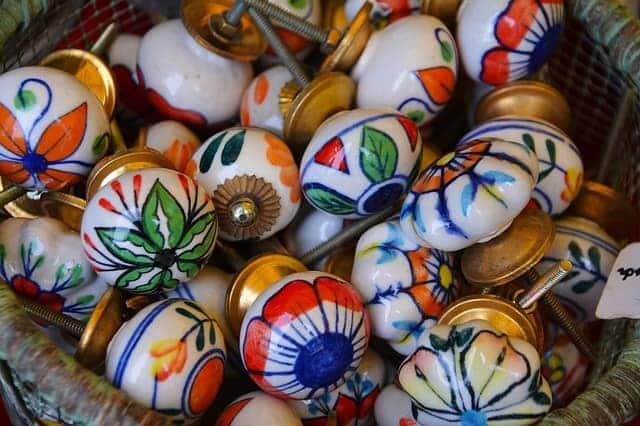Someday in the future, automated doors will be installed in every household. Once that happens, no one will have to worry about touching the gross doorknobs on anyone else’s house ever again…maybe. That’s kind of more of along the lines of a dream we have that we’re wishing will come true. The part about gross doorknobs, that’s the reality we live in. And it’s pretty awful.
Yours and everyone else’s doorknobs are really, really gross. Think about it, it’s one of the places in your home that people (yourself included) come into regular contact with, and it’s not a place that we very often think of cleaning. If you were to wipe down your doorknob, you’d probably shudder at the amount of dirt that would come off of it. The idea of a dirty door knob may sound ridiculous, but it does make sense. Our hands leave behind oils and bacteria that build up over time, which then stick to these surfaces.
So, how do you actually clean them?
Hmm, that’s a really good question and we have the answers for our Cypress, Texas residents. How do you clean your doorknobs? Well, first off, if your doorknob is coated with a glossy finish, you aren’t going to get the actual knob itself clean. You can use a mineral spray to strip away the coating and then disinfect. You can always re-coat your doorknob afterward if you like. If your door’s hardware doesn’t have a gloss coat, and you’re looking forward to employing a non-toxic way to do so, all you need to do is just spray on the surface with vinegar and then wipe it dry with a clean rag. That’s it, it’s that easy.
If you’d rather a ready-made solution, then you can use disinfectant wipes to clean off the doorknob instead. These wipes are quick and easy. On top of that, they don’t cost too much, and you can use them in other neglected parts of your home as well. All you need to do is thoroughly wipe them over the surface of the doorknob and let it dry.
Removing Odors
To remove any odors (yes, a doorknob can stink. Pretty much anything can if you don’t clean it regularly) you can try mixing baking soda, soap, and water to make a cleaning agent. Be warned, however, that baking soda is abrasive and if left on certain surfaces can cause scratching. If the surface is safe (not made of aluminum, antique silver or is gold plated), then you can use the cleaner you’ve made to wash up your doorknob.
While we’re on the subject of cleaning overlooked household objects; make sure that you focus on the doorknobs, handles and other things that get the most use during the day such as:
- The front door knob
- The bathroom doorknob
- The refrigerator doors and their handles
- The microwave doors and their handles
- Your cabinet handles and their knobs.
- Your computer keyboard
- Your computer mouse
Self Disinfecting Door Knobs
A nice tidbit to leave off on is that there are actually some metals, like brass, that sterilize themselves. This is known as the hydrodynamic effect—which was discovered by Swiss scientist Carl Von Nageli— and is what makes brass an ideal metal for things like doorknobs and cookware brass doorknobs are able to kill off harmful bacteria in about 7 to eight hours while stainless steel and aluminum door knobs are unable to do so.
If you are looking forward to getting a doorknob installed for whatever reason, then an (unvarnished) one would be the way to go. It would be much more sanitary and is one less place in your home that you would have to worry about your family and friends contracting germs from.
Bonus—How to Clean Brass Doorknobs
Now even though those of you with brass doorknobs have learned, that you don’t really have to clean them, we’re betting you probably still want to anyway. That’s fine, why leave all the heavy work up to science when you can apply some elbow grease and clean your own (and other’s) mess, right?
Your first order of business will be to make a paste that is equal parts flour, vinegar, and salt. You can measure out how large each “part” will be depending on how much you want to clean, but a tablespoon is a good start. Once the paste has been made you can gently rub it onto your brass doorknob. From there you can let it sit for a few minutes and then buff the paste off.
Another method you can use is to cut a ripe lemon in half and cover the exposed pulp with salt. Then rub the salt covered pulp across the brass. This will begin to scrape at the caked on dirt, tarnish, and germs. Once you’ve gotten the doorknob clean, you can buff with a cotton cloth to get rid of any residue left from the process.

